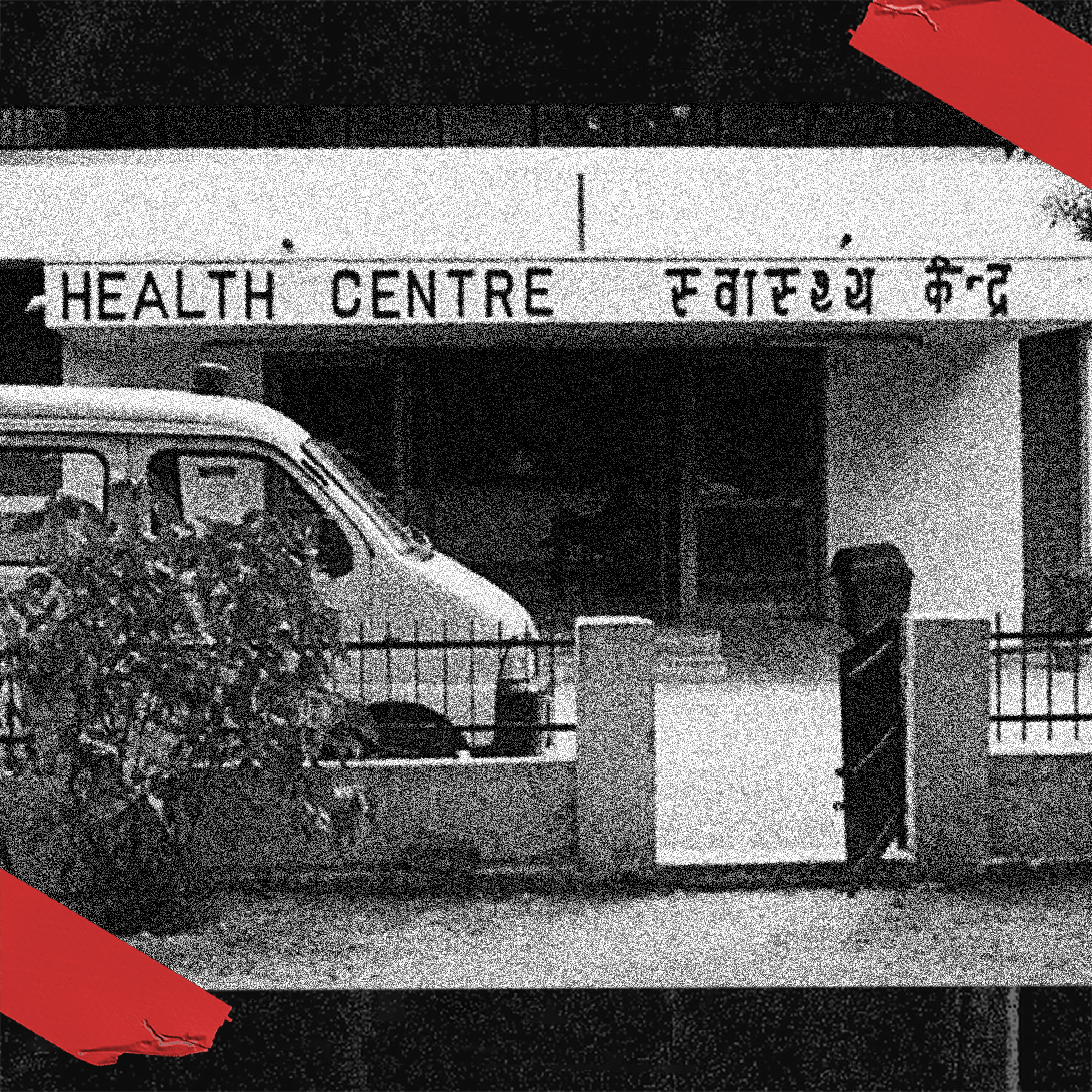IIT Kanpur, one of the country’s finest flagship residential campuses, housing over 8000 students, numerous workers, faculty members, and their families from all over the country, is naturally not immune to ailments and medical emergencies. The IIT Kanpur Health Center is the central body that looks into the ailments of our residents. With over 15 doctors listed on its website, we also have specialists visiting the center from time to time. Our campus is a community in itself, and the campus community’s health must be well catered to. Following several developments and grievances around the Health Centre, the Vox team decided to investigate what the ground reality and public perception were concerning the Health Centre. Unfortunately, we were not able to get a statement from the HC officials regarding the matter, despite multiple attempts.
In a survey answered by 187 participants, we found out that the most voted option answering the question How often do you visit the Health Center? , was that of emergencies. Less than 10% of the respondents stated that they visited the HC more frequently (two to five times a month), mainly to look after chronic illnesses. The most common reasons for visiting the HC were simple injuries, flu, food poisoning, etc.
When asked what the campus felt about the services provided by the HC, over 50% of the respondents claimed to have a certain level of dissatisfaction with the services provided by the Health Center. Let us take a look at what the respondents have to say-
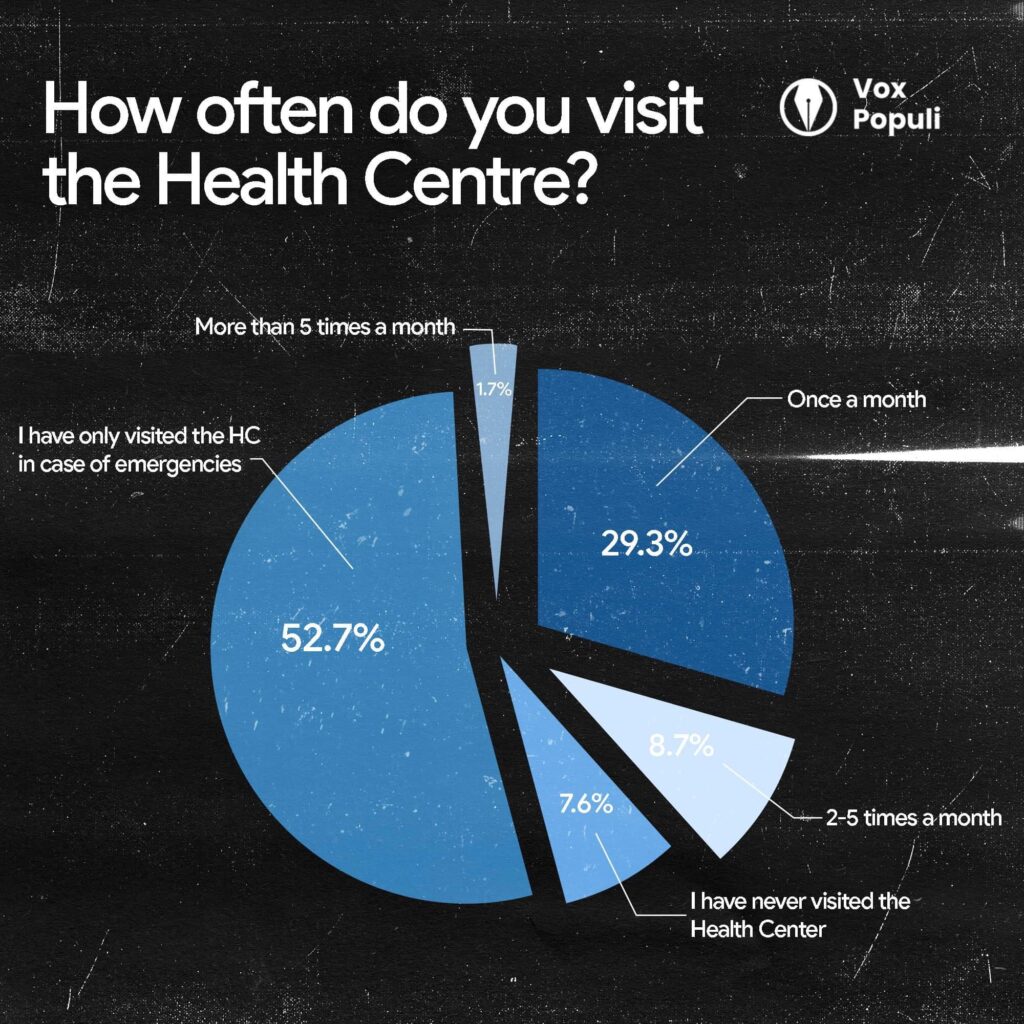
The Health Center
One of the most frequently mentioned problems was regarding the unavailability of doctors, or the delay/waiting time for appointments. In principle, the Health Centre is supposed to ensure that a second doctor is available as a substitute in a particular shift, and that has seemingly not been the case in the way the HC has operated post-pandemic. There have been quite a few complaints about the waiting time or the working hours of the Health Centre, but due to constraints of resources, we were told that the problem boils down to choosing between increasing the working hours or having backups during emergency hours.
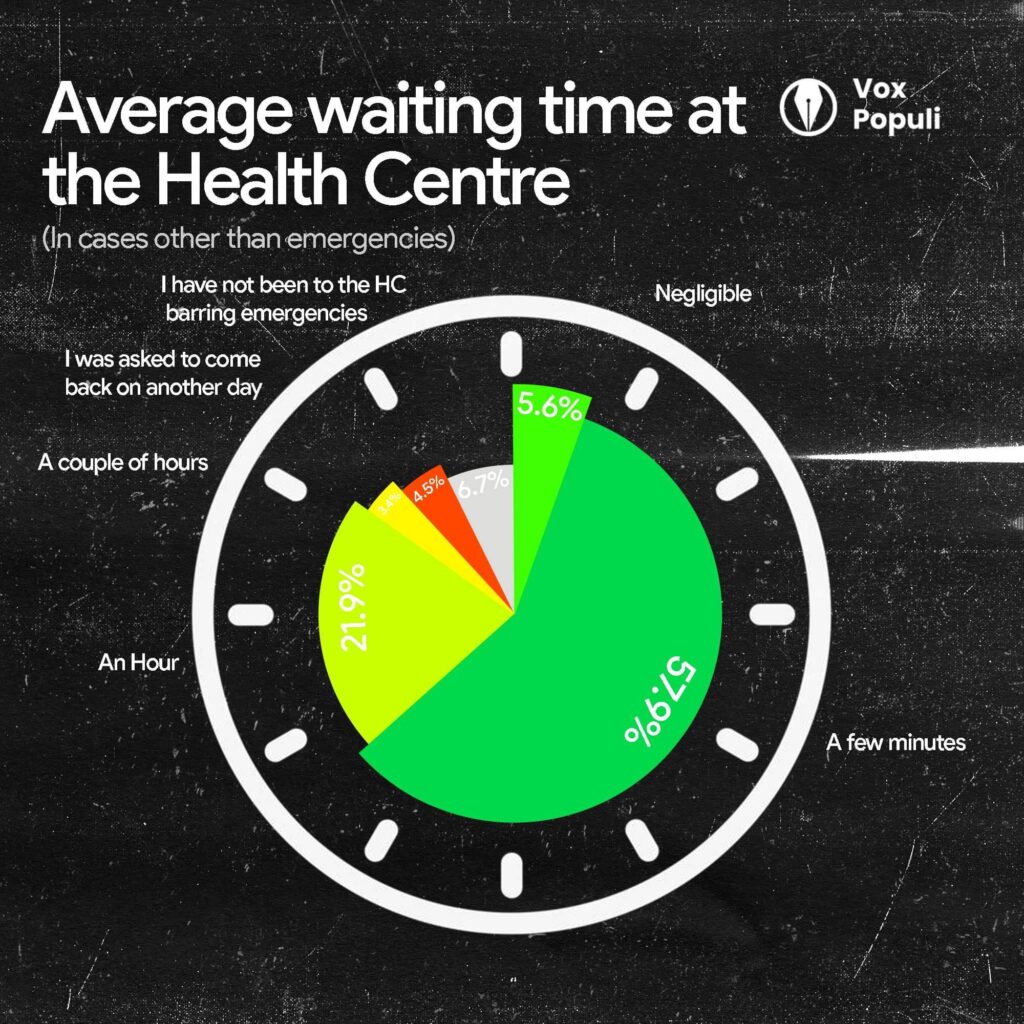
About 10% of the respondents claimed that the officials were rude and judgemental and that they had been denied treatment when they approached the HC during emergency hours.
In a recent incident, a student who visited the Health Center psychiatrist stated that he was treated very rudely and impolitely and that the psychiatrist didn’t even bother looking at him, much less making him feel welcome during the visit.
“I had an emergency once, and the emergency contact numbers of the HC were not reachable”, another student told us. “I went there, in a very distressed state, and on reaching the center, I was told that this problem had been going on for 10 days. Apparently, they had registered a complaint too but nothing was being done. After that, I was given an alternative number, not available on the site or anywhere else.”
Many such examples, concerning the rude treatment of the doctors and the staff at the Health Center, were found in the survey. The respondents stated the officials are rude, arrogant, and ignorant, and hinted that they were annoyed by the patients, or were indifferent, to say the least.
However, we also found out that a similar number of survey respondents held the opinion that the waiting time was standard and the services were satisfactory. They stated that the staff was regular, helpful, and punctual, and the ambulance service was stated to be very reliable in case of emergencies. A student additionally mentioned that the HC helped him arrange for an ambulance and the related arrangements in an accident outside the campus. One of the respondents said that the HC even delivered medicines to their room due to the medication being previously unavailable. Another quoted, “We should be satisfied with the health facilities provided by the institute. Not everyone has access to such facilities, and we should be thankful for what we have”.
Coming to the quality of treatments, there were some claims about extreme medications being advised by the Health center. A couple of respondents claimed that the specialists were hasty and overlooked a lot of symptoms before prescribing medication. We also received responses claiming that they had been prescribed a heavy dosage, for instance, one respondent claimed that he had been given three injections to cure dehydration.
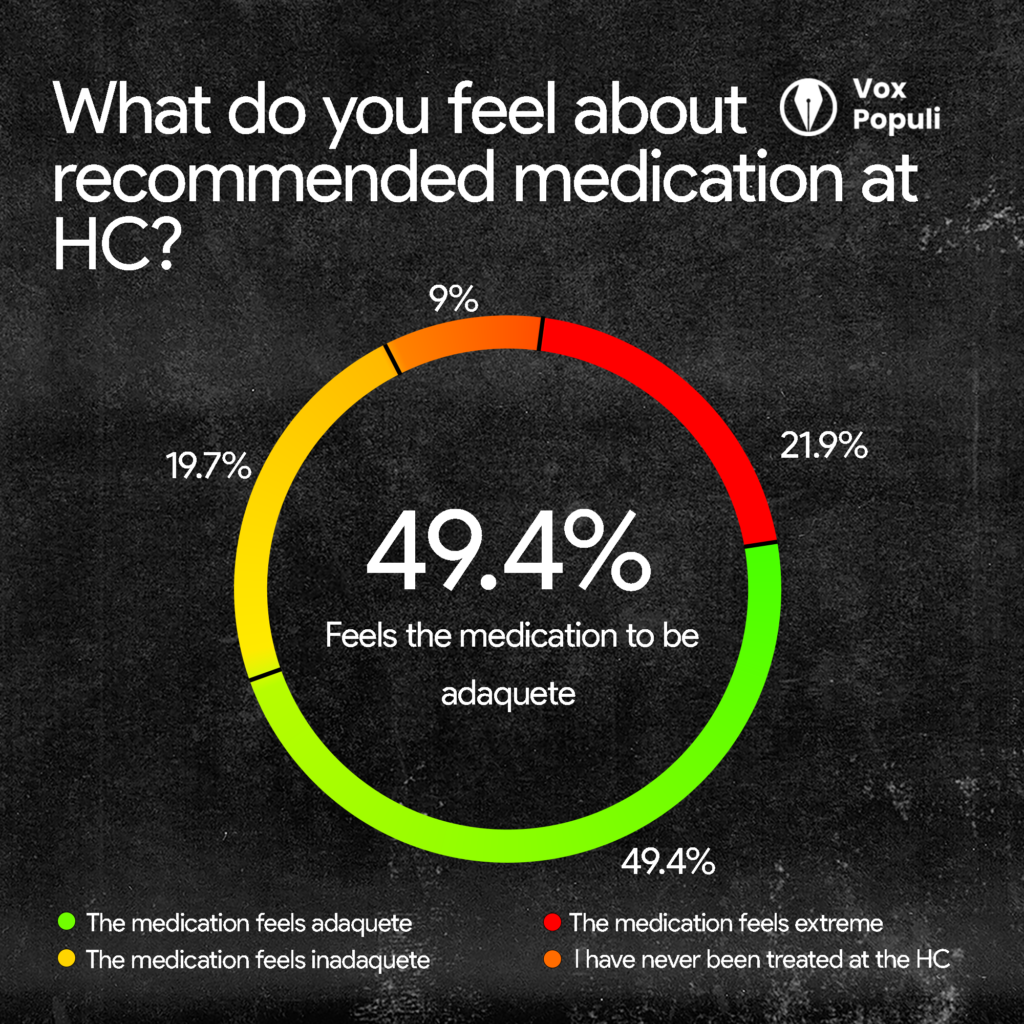
However, contrary to the opinions stated above, only about 20% of the respondents felt that way. In the survey, one respondent claimed that doctors often went out of their way to help with the treatment, familiarised themselves with the doctors back home, and make arrangements with the hospitals outside the campus to make the treatment more accessible. A few doctors were also listed as polite and welcoming, and their treatment was claimed to be more than satisfactory.
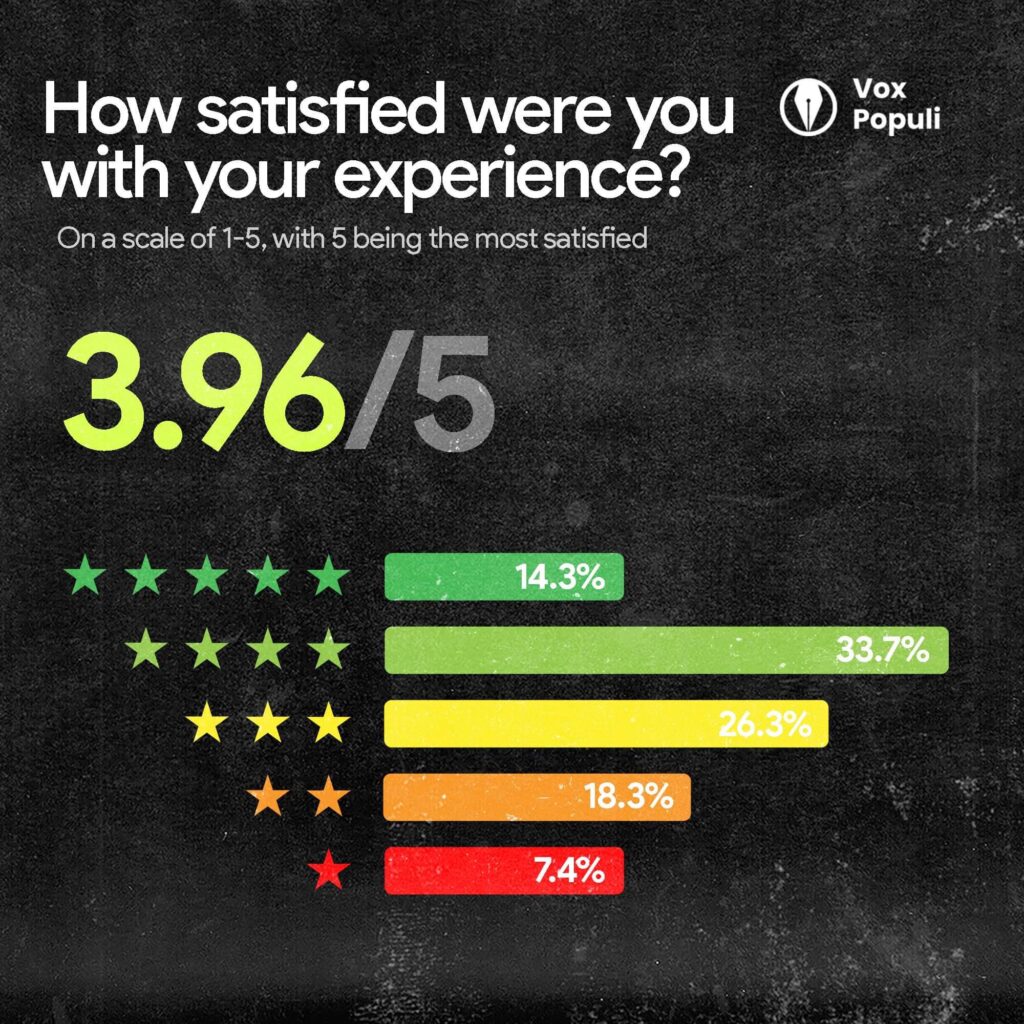
In general, we received a lot of negative feedback based on the quality of treatment, the general conduct of the doctors, the (in)adequacy of technology, and the working hours. Many respondents also complained about the HC pharmacy always being out of stock.
However, an anonymous source stated
“There are a lot of people with preconceived notions about the HC who criticize it for no reason. This happens due to the nature of the field. Bad treatments are amplified and talked about while good treatments are never talked about.”
The Apollo Pharmacy
In the responses, we also received a few complaints regarding the Apollo Pharmacy. To look into these complaints, we interviewed the Apollo Pharmacy supervisor. When asked why the pharmacy was frequently short on essentials such as Odomos, Sanitizers, and Electral, he stated that the quantity needed for these items is never definite. “We keep just enough stock so that none of it expires, otherwise we find that a lot of the stock goes to waste, which we cannot afford. We do not keep a buffer stock. Whenever the stock is depleted we order them, and they’re here in a day or so.”
We were told that an Apollo application exists, through which we can order medicines and have them delivered to the room in the daytime. Apollo24x7 helps you order and pay via UPI, and then directly collect the items at the Health Center.
There were numerous complaints about the failure of the online payment system of the Health Center and their treatment of students.
I practically yelled and slammed their desks and they continued to ignore me as if I didn’t exist. I had gone there to get sanitary pads in the early morning, I paid twice, but their system was not working, and they simply chose to ignore me after that. I went back three times, only to get a different excuse every time, and finally got my refund on my fourth attempt.
Another student said, “I believe that having an alternative to Apollo Pharmacy will create competition in the market. I hope that at least that would act as an incentive to treat the students right and keep the meds stocked up at all times.”
Insurance
In the survey, we asked students if they were aware of the insurance policy of the Health Center. Shockingly, we found out that over 50% of the respondents were unaware of the insurance policy at IITK. Although there are no complaints regarding this matter, we thought it best to make the student community aware of the benefits offered by the institute.
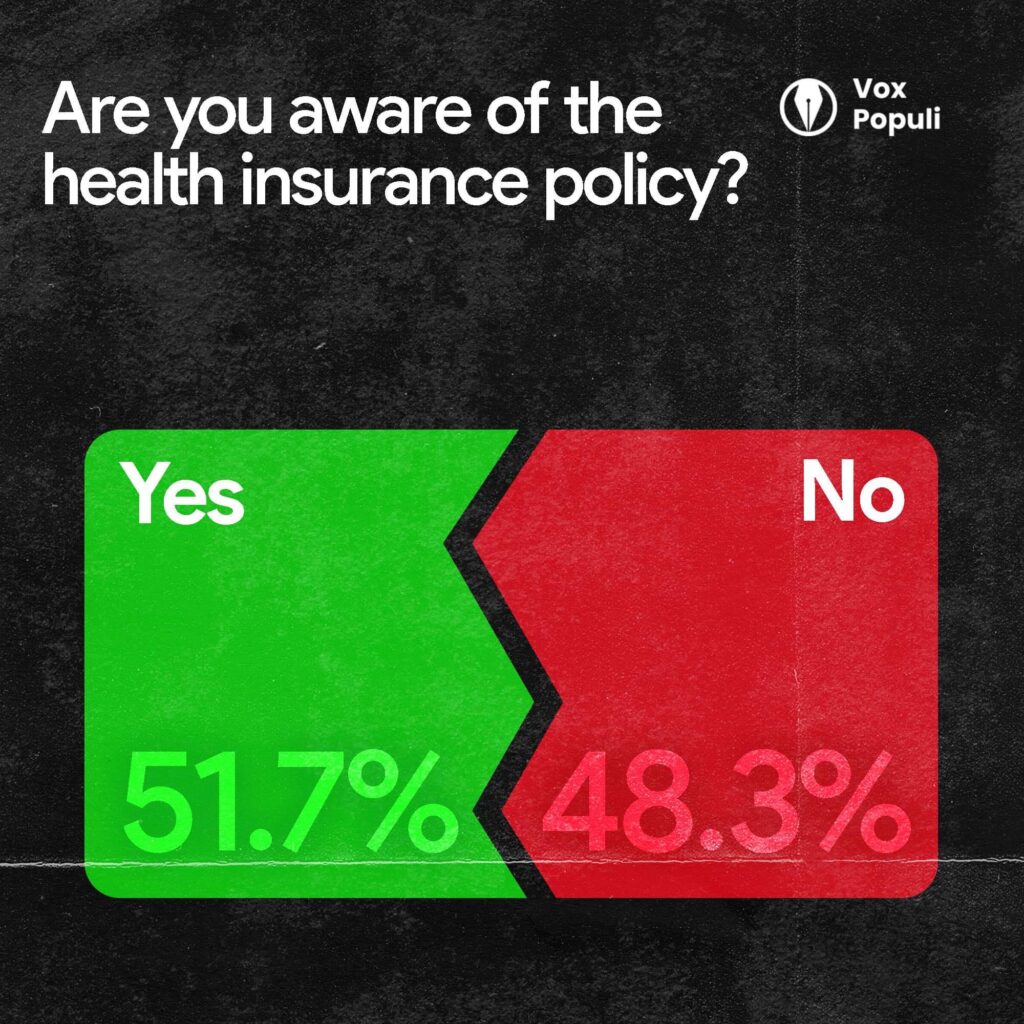
There exists an insurance policy for the IIT Kanpur students, by which we can reimburse all the medical costs expended in any external hospitals. The Health center takes care of the costs endured by the students when visiting external hospitals. According to a source, 70% of the Insurance Fund is currently getting claimed by the students. The policy is availed by default, even without involvement from the insuree, which means that students can claim it even if they aren’t aware of the specifics of the policy. Interestingly, it was brought to our notice that our institute’s insurance policy was one of the few insurance policies in institutes that also covered the pandemic casualties.
The insurance policy of our institute applies to any hospital in Kalyanpur, however, a cashless transaction exists in only a few. In the rest of the hospitals, students need to pay the amount first and then claim the reimbursement. These hospitals include the Madhuraj hospital, which is mainly recommended by the HC. As far as private hospitals go, the quality of treatment is a little on the spotty side, but it has a better rapport with the HC. The Regency hospital is the largest private hospital and offers a much better quality of treatment, however, it has a much longer waiting time, and it asks for an extra amount for the treatment, which is not included in the insurance. Lala Lajpat Rai Hospital (formerly Hallet Hospital), is the government hospital recommended by the health center.
The Insurance policy gets modified every year. Reforms are suggested and debated by a committee that approves them. There exists an amount of about 1.5 lacks of direct coverage and about 1 lakh rupees in corporate buffer Premium amounts change, and so does the coverage amount. These changes are usually informed to the residents via email. However, we can always get to know more about the insurance on the health center’s website.
Feedback
Coming to the possible improvements to overcome these difficulties, it was suggested in the survey that the HC should work towards increasing students’ awareness of the health-related protocols on campus, including information about the health and insurance policies, the HC rules and regulations, and the HCUC (The Health Centre Users Committee).
Following the aftermath of the pandemic, the functioning of the HC has changed dynamically. While some things have improved, certain aspects of the way of operating the facility have also become inconsistent. The HCUC has also been sporadic in its meetings and the lack of a feedback mechanism in place for the HC has been a point of concern of late.
It was brought to our notice that the HC has been revamping facilities deployed, and technological advancements have been planned to digitize the maintenance of records. These changes should improve the day-to-day operations at the HC and also help in streamlining the experience for campus residents.
To conclude, the Health Center is arguably far from perfect, but it stands to be a capable institute center. The falling standards of the services offered seem to be one of the problems that plague it. We hope that the improvements in the quality of treatment and the services provided by the HC go hand in hand with the advancements in technology. Hopefully, the near future ahead should bring a more efficient and improvised Health Centre Experience.
Written by – Aniruddh Pramod, Manasvi Jain, Nishanth Shanmukhan, Ridin Datta
Edited by – Sanika Gumaste, Aryan Pandeya
Design by – Praneat Data, Atharv Jiwane




